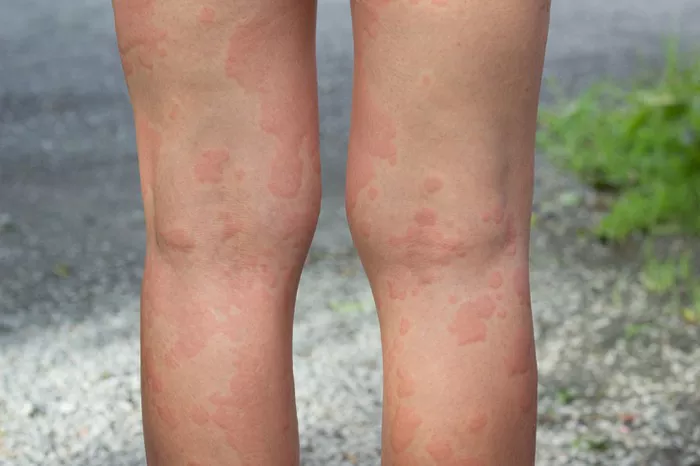Psoriasis is a chronic autoimmune condition characterized by the rapid growth of skin cells, leading to scaling, inflammation, and redness. While the exact cause of psoriasis remains unclear, it is widely accepted that a combination of genetic, environmental, and immunological factors play a role. Among these, diet has emerged as a significant factor in managing psoriasis symptoms. Although no specific foods are known to cause psoriasis, certain dietary choices can exacerbate the condition, triggering flare-ups or worsening symptoms.
Inflammation is a key player in psoriasis, and it is also closely linked to dietary habits. Foods that promote inflammation can potentially aggravate psoriasis, while an anti-inflammatory diet can help manage symptoms. It’s essential to understand that while diet alone cannot cure psoriasis, it can significantly influence the severity and frequency of flare-ups.
SEE ASLO: What is the Best Medicine for Psoriasis of the Scalp?
Key Dietary Considerations
An anti-inflammatory diet is often recommended for individuals with psoriasis. This diet focuses on whole, unprocessed foods that can help reduce inflammation and promote overall health. Here are some dietary considerations for managing psoriasis:
Processed Foods, Sugary Drinks, and Refined Carbohydrates: These foods are high in sugars and unhealthy fats, which can trigger inflammation in the body. Processed foods often contain additives and preservatives that may exacerbate psoriasis symptoms. Reducing or eliminating these foods from your diet can be beneficial in managing the condition.
Foods High in Saturated and Trans Fats: Saturated and trans fats, found in red meat, fried foods, and certain baked goods, can increase inflammation and contribute to the severity of psoriasis symptoms. Opting for healthier fats, such as those found in olive oil, avocados, and fatty fish, can help reduce inflammation.
Dairy Products: For some individuals, dairy products can be a trigger for psoriasis flare-ups. While not everyone with psoriasis will be sensitive to dairy, it may be worth experimenting with a dairy-free diet to see if symptoms improve.
Alcohol: Alcohol is a known trigger for psoriasis in many individuals. It can increase inflammation and interfere with the effectiveness of certain psoriasis treatments. Limiting or avoiding alcohol consumption can help manage symptoms.
Certain Spices and Seasonings: Spices like paprika and chili powder can trigger inflammation in some people with psoriasis. If you notice that your symptoms worsen after consuming spicy foods, it may be helpful to avoid these seasonings.
Gluten: Gluten sensitivity or celiac disease is more common in individuals with psoriasis. For those with gluten sensitivity, consuming gluten can trigger inflammation and exacerbate psoriasis symptoms. A gluten-free diet may be beneficial for these individuals.
Practical Dietary Tips for Psoriasis Management
Managing psoriasis through diet involves a combination of eliminating potential trigger foods and incorporating anti-inflammatory foods into your meals. Here are some practical tips:
Incorporate Anti-Inflammatory Foods: Focus on a diet rich in fruits, vegetables, whole grains, lean proteins, and healthy fats. Foods like leafy greens, berries, fatty fish, nuts, and seeds are known for their anti-inflammatory properties and can help reduce psoriasis symptoms.
Eliminate Potential Trigger Foods: Keep a food diary to track your symptoms and identify any foods that may be triggering flare-ups. Gradually eliminate these foods from your diet and observe any changes in your symptoms.
Plan Balanced Meals: Create meal plans that include a variety of anti-inflammatory foods. For example, a breakfast smoothie with spinach, berries, and flaxseeds, a quinoa salad with grilled salmon and avocado for lunch, and a dinner of roasted vegetables with a side of brown rice and lean chicken can provide a nutrient-rich, anti-inflammatory diet.
Manage Cravings: Cravings for unhealthy foods can be challenging, but it’s important to find healthier alternatives. For instance, if you crave something sweet, opt for fresh fruit instead of sugary snacks. If you miss the crunch of fried foods, try baking or air-frying instead.
Consult a Dietitian: Working with a registered dietitian or nutritionist can help you create a personalized diet plan tailored to your specific needs and preferences. They can provide guidance on identifying trigger foods and suggest suitable replacements.
Tips
There are many myths and misconceptions surrounding diet and psoriasis. Some people believe that certain foods can cure psoriasis, while others think that dietary changes are ineffective. It’s important to approach diet as one aspect of a comprehensive psoriasis management plan, which should include medical treatments, skincare routines, and lifestyle modifications.
Conclusion
Diet plays a crucial role in managing psoriasis, but it is highly individualized. While no specific foods cause psoriasis, certain dietary choices can trigger or worsen symptoms. By focusing on an anti-inflammatory diet and avoiding potential trigger foods, individuals with psoriasis can better manage their condition and improve their quality of life. Always consult with a healthcare provider or dietitian before making significant dietary changes to ensure they are appropriate for your specific situation.
Related Topics:

























